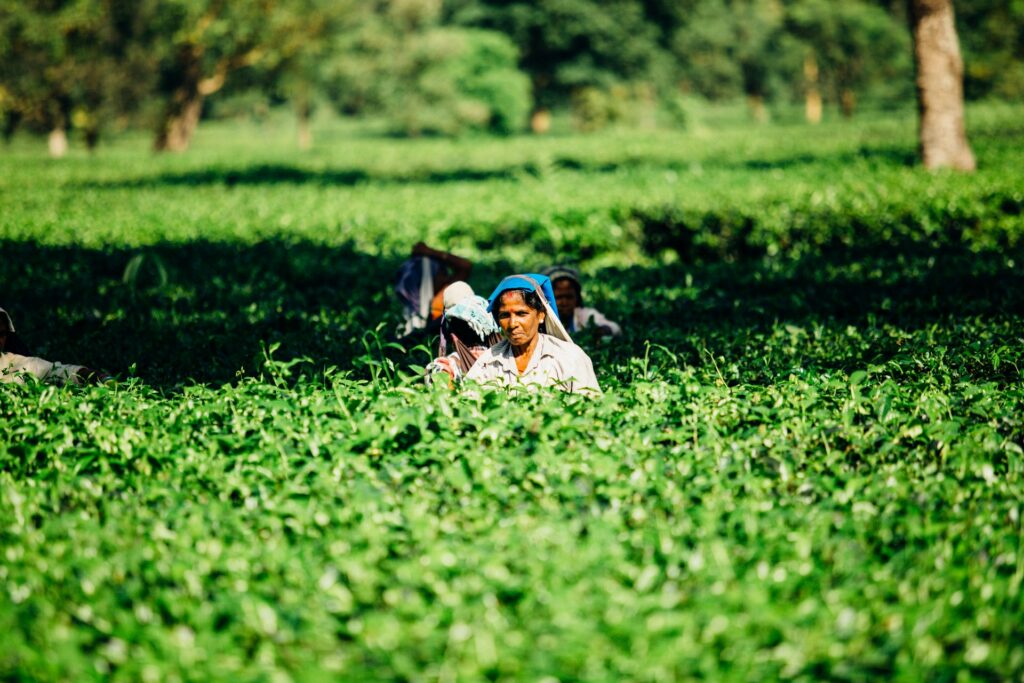SE Asia Hospitality’s Late Arrival to Digital Disruption

By Xinyi Liang-Pholsena
Southeast Asia’s startup and tech talent pool is flourishing, but the hospitality industry is just getting into the digital innovation game. With travel on the verge of a swift comeback, hotel companies behind the curve of digital transformation have a lot of catching up to do.
- The hospitality sector has traditionally been slow to embrace technology, but major hotel chains like Centara and Dusit have launched their own programmes to seek fresh innovation from startups
- A growing number of hotels have also joined the Singapore Tourism Accelerator programme to partner with startups, while VC investment is starting to see takers among hotel companies
- Hotel companies could also learn about disruption and innovation from successful examples from outside the industry, such as Siam Commercial Bank
- Yet, a legacy mindset still persists among Asian hotel groups, preventing them from tapping into Southeast Asia’s thriving $8.2 billion startup ecosystem and a new generation of entrepreneurs

As the sun sets on the Centara Grand Beach Resort Phuket, the Italian restaurant Mare comes to life. Chefs bustle in an open kitchen, preparing dishes like risottos and pizzas. Once prepared, the dishes are served to diners by a Ginger Lite service robot from CloudMinds, a China-based company. They may not provide a speedy service, but they ensure there’s no direct contact with guests in a world that’s still not completely free from the shackles of the pandemic.
Humanoid service robots with wheels are no longer a novelty in countries like Singapore. But a high-end beach resort in Thailand using them speaks volumes about the wider digital transformation that’s now sweeping across Southeast Asia’s hospitality industry.
Apart from Ginger Lite, the Centara Grand also has other digital amenities, such as 24-hour online doctor consultation for its guests through TytoCare, an Israel-based company that makes portable medical devices. These new offerings, introduced in November, are part of the beachfront resort’s 5G smart tourist pilot partnership with local telecom operator True Corporation.
“Where AI can assist in doing more mundane things more efficiently, why not?” said Markland Blaiklock, deputy CEO of Centara Hotels & Resorts, a division of Thailand’s largest retail conglomerate, Central Group. The pandemic has catalysed the shift of consumer preferences and habits from offline to online, so the focus on staying technologically ahead is now “a new norm” for the hotel group, added Blaiklock.
This is a big step for the hospitality sector, which has historically been a laggard when it comes to adopting digital technologies. At least compared to its other service-sector peers such as airlines, telecom, and banking. While airlines and airports have already streamlined their operational structure and automated processes like check-ins, the hospitality sector still uses keycards, in-room paper menus, and clunky network cables for wired internet connections.
“Stop investing in new toys for hotel rooms vs tech that engages and improves the experience. Most guests would rather interact on WhatsApp rather than a hotel phone, so why even have hotel phones?”—Bill Barnett, Founder and Managing Director, C9 Hotelworks
This isn’t surprising, since hospitality has always been a high-touch business, with personalised service and comfy in-room amenities. Particularly in Southeast Asia, where labour is generally abundant and cheap. The pressure to introduce more cost-effective measures to the workflow has been considerably lesser than other sectors, especially pre-Covid when robust tourist flows kept the industry buoyant year after year.
Hotels and hospitality continue to have a brain fog on innovation, said Bill Barnett, founder and managing director of C9 Hotelworks, a Phuket-based hotel and property consultancy. “The biggest reason hoteliers don’t get innovation is they are possessed by products and not processes. These days, it’s also hard to see hotel groups invest big in tech when they are all trying to have the poshest guest rooms.”
However, things are changing now. There’s a growing recognition that the hospitality business isn’t just about selling rooms. Hotels were forced to fundamentally rethink revenue generation when their meeting spaces and restaurants stood empty during Covid. Rooms currently account for around 55% of hotels’ revenue, noted Barnett, while the remaining 45% comes from restaurants. This could potentially be taken up by “the Grabs, Foodpandas and movers in the market,” he said.
As Southeast Asia’s population comes online at a breakneck speed, hotels have to get a lot smarter and anticipate changes in guest behaviour. Southeast Asia has added a whopping 60 million new internet users since early 2020, according to a joint report by Google, Temasek, and Bain & Company.
There’s no dearth of tech solutions geared towards the hospitality industry. Besides AI-powered robots, there are contactless check-in and digital key solutions, voice-activated control of in-room settings and entertainment devices, and 360-degree virtual reality tours to spruce up the guest experience. There’s also guest messaging software and cloud-based property management tools to digitalise operational processes.
It’s up to hospitality companies to bite.
Disruptors meet legacy business
Interest in travel technology is ramping up among startups and venture capitalists in Southeast Asia.
The Singapore Tourism Board (STB) was one of the early movers in unlocking innovation and addressing the specific needs of the country’s tourism sector. In 2019, it launched a four-month Singapore Tourism Accelerator (STA) programme, which connects promising startups with their respective industry partners, with an aim to roll out a pilot project. Networking, mentorship, funding, and temporary relocation support is offered along the way.
The STA has received more than 700 tech solution applications from 50 countries. It has on-boarded more than 30 tourism businesses as industry partners across four cohorts. Twelve hotels have conducted pilot projects under the STA banner till date.
With Covid-19 accelerating digital transformation efforts, more and more tourism companies in Singapore are showing their readiness to transform their businesses, said Ong Huey Hong, STB’s executive director of industry technology development.
Ong gave examples of some of the new ideas that have emerged from the STA: (i) Silicon Valley-based WooHoo’s next-generation Voice Assistant speaker at Copthorne King’s Hotel Singapore, which allows guests to use voice commands to place in-room dining orders or control in-room temperature and entertainment; (ii) an augmented reality art tour developed by Australia-based PlattAR at The Ritz-Carlton, Millenia Singapore; (iii) Singapore-based Quincus’ delivery optimisation pilot to address perennial delivery congestions at loading bays of Pontiac Land Group properties.
It’s increasingly obvious that partnerships with young and dynamic companies could bring much-needed innovation and ingenuity to hospitality organisations. However, the outdated attitude of David and Goliath business is standing in the path of innovation for many hotels in the region, said Nicholas Cocks, founder and managing director of Velocity Ventures, a Singapore-based hospitality and travel-focused venture capital firm.
Case in point: Cocks said an established Asian hotel chain still has a policy of only working with companies that have logged three years of accounts. “So, if you’re a startup, there’s no way you can do business with them. How are these hotels ever going to innovate if they can’t work with companies that are dreaming up these new ideas?” said Cocks.
Such perceptions of startups as a nascent sector no longer stand to test, considering how rapidly Southeast Asia’s tech ecosystem has matured in recent years. The pandemic has diminished neither venture capital nor entrepreneurial interest in Southeast Asia. Southeast Asia has also attracted more sophisticated VCs from overseas, as we’ve written before.
“There’s hundreds of VC firms just in Singapore, and an incredibly vibrant ecosystem,” said Cocks. “There’s government support, and there’s accelerators as incubators. It’s quite phenomenal what’s happened in a very short space of time. The entrepreneurial activity generally and also in the travel and hospitality space is exceptional.”
Meanwhile, easier access to venture capital during Southeast Asia’s tech boom is driving young people towards an entrepreneurial career, resulting in a new generation of promising startups.
“Tesla is the case study of all case studies, isn’t it? Why didn’t the big car guys come out with an electric car? Time and again, it’s always the new guy on the block who disrupts stuff.”—Nicholas Cocks, Founder and Managing Director, Velocity Ventures
“There’s a huge flood of younger people who want to build their career as an entrepreneur rather than working in a corporation. It’s got a lot of glamour attached to it, and, obviously, the financial rewards if you get it right,” said Cocks.
Finding the innovation key
It’s this growing tech talent and innovation in Southeast Asia’s blossoming startup ecosystem that Blaiklock hopes to capture with the Centara Startup Sandbox—a three-month incubator programme that Centara recently launched in partnership with True Digital Park, a tech and startup hub in Bangkok.
Exposing Centara to innovative ideas from external collaborators will also deepen the company’s move towards being a digital organisation, said Blaiklock. The 38-year-old hotel group had embarked on transformation efforts since 2017, which included adopting a new tech platform and upgrading all its websites to tap consumers’ preference for direct online bookings.
Improving the guest experience and building up customer loyalty will mark the next phase of the group’s digital transformation strategy. Working with startups will enable Centara to “get some fresh ideas and outlooks on what we maybe could do,” said Blaiklock.
Depending on the pitching outcomes—final pitching takes place in December—the hotelier doesn’t rule out organising subsequent editions of the Centara Startup programme or integrating newfound ideas into its operations. Neither does he rule out the possibility of pumping investment into startups with solutions that are a good fit with the hotel group.
“The idea of partnering with True Digital Park is about stepping outside the box to see what creative ideas exist and what could be put into play to help us bring more customers to our hotels and help give them better experiences at our properties.”—Markland Blaiklock, Deputy CEO, Centara Hotels & Resorts
Apart from Dusit, equity partners in The Food School include Glowfish Co-Working Space (under privately owned real estate investment company Heritage Estates); Allied Metals, a prominent supplier of professional kitchens and kitchen infrastructure in Asia; and La Scuola Internazionale di Cucina Italiana, a leading education and training centre for Italian cuisine.
The key objective of the school is to give young food professionals, aspiring home chefs, and F&B entrepreneurs in Thailand a fully-equipped incubator kitchen to test out their recipes and concepts prior to launch. Students will also have access to Dusit’s network of chef advisors, as well as financial support opportunities from investors during pitching sessions.
“There will be a lot of exchange and networking within this community—which is what is missing normally in a lot of schools. Students come out of culinary schools and they know nothing about professional life, but we are going to expose them through this incubator concept,” said Laurent Casteret, school director of The Food School.
The readiness to look out of the box for disruptive concepts is steadily growing in Southeast Asia. Besides taking the outside-in approach as outlined above, hospitality corporations can pursue an inside-out innovation strategy that involves building up a corporate venture capital (CVC) or partnership unit, said Supachai Parchariyanon, CEO and co-founder of RISE, one of Southeast Asia’s largest accelerators.
This type of innovation vehicle is commonplace among Thai corporate giants such as PTT, Siam Cement Group, and Siam Commercial Bank (we’ve written about how CVC forms the bulk of startup investment in Thailand).
Not all hospitality corporations see the need or have the resources to deploy their own innovation vehicles, though. For corporations still new to the tech innovation game, an alternative is to invest in a VC fund, something that Parchariyanon said has just begun to gain traction.
Veranda Resort, which owns and operates hotels and resorts in Thailand, has invested in SeaX Ventures, RISE’s VC firm that focuses on investment in early-stage startups with deep tech. “We’ve never heard of hospitality companies investing in VC funds until Veranda, which has become more active in the startup scene. Their goal is to explore new technology in anticipation of a tourism comeback,” said Parchariyanon.
For hospitality companies in Southeast Asia, VC investment is not only a way to generate returns but also to provide “synergy and learning points” from more nimble startups, he added. Successful ideas by startups in advanced ecosystems like the United States can be replicated and modified for adoption in their home market, which can speed up their innovation journey.
Skin in the tech game
However, disruptive thinking is as much about culture as it is about technology. The most successful corporations don’t just build a new innovation vehicle; they also understand how consumer behaviour has changed and, in turn, respond with agility to deploy a new idea in a short space of time.
A distinct example lies in Thailand’s fourth largest bank, SCB. It has spun out 15 entities under a new holding company, SCB X, to hasten its expansion in the competitive fintech space (we’ve written about SCB X’s regional tech ambitions).
“Otherwise, if you always need to consult with the mothership, everything’s going to be slower. But if you behave like a speedboat, you will be able to ride really, really fast and change many things,” said Parchariyanon.
Clearly, Southeast Asia’s hospitality sector needs to get involved in the tech ecosystem as soon as possible to leverage the growth opportunities and momentum. “Because if they’re not putting themselves to have skin in the game, I think they actually are not going to be catching up,” Parchariyanon added.
Painful as the pandemic has been for most travel-related companies, huge opportunities await for startups and corporations alike to create fresh innovation, as the industry emerges from Covid. In the 12 months since Velocity Ventures’ US$20 million travel and hospitality-focused fund was established in late 2020, Cocks said that more entrepreneurs are “starting new businesses to take advantage of the new way the industry looks”.
One thing is definite as Southeast Asia powers up as an innovation and technology powerhouse: the moment of digital reckoning in hospitality has arrived.






Responses